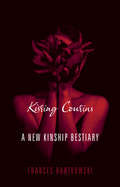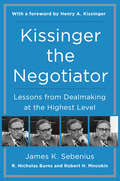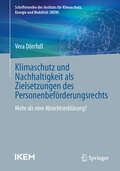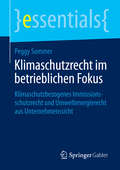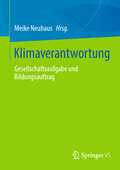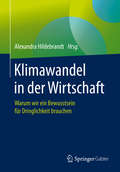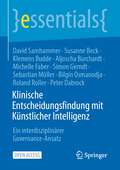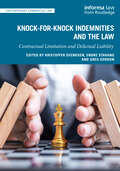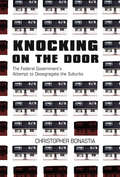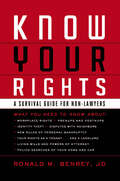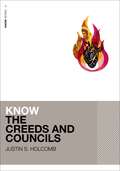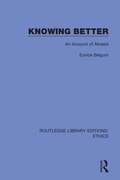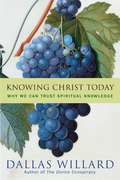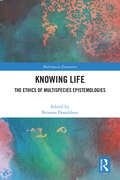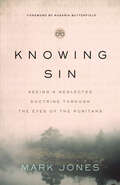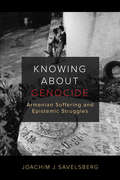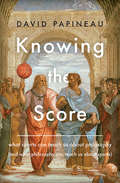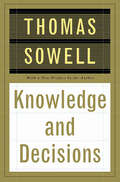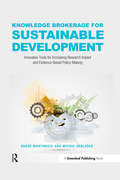- Table View
- List View
Kissing Cousins: A New Kinship Bestiary
by Frances BartkowskiSince DNA has replaced blood as the medium through which we establish kinship, how do we determine with whom we are kin? Who counts among those we care for? The distinction between these categories is constantly in flux. How do we come to decide those we may kiss and those we may kill?Focusing on narratives of kinship as they are defined in contemporary film, literature, and news media, Frances Bartkowski discusses the impact of "stories of origin" on our regard for nonhuman species. She locates the role of "totems and taboos" in forming and re-forming kinship categories-groupings that enable us to tie the personal to the social-and explores the bestiary, among the oldest of literary forms. The bestiary is the realm in which we allegorize the place of humans and other species, a menagerie encompassing animals we know as well as human-animal chimeras and other beings that challenge the "natural" order of the world. Yet advances in reproductive technologies, the mapping of genomes, and the study of primates continually destabilize these categories and recast the dynamic between the natural and the cultural.Bartkowski highlights the arbitrariness of traditional kinship arrangements and asks us to rethink our notions of empathy and ethics. She shows how current dialogues concerning ethics and desire determine contemporary attitudes toward issues of care, and suggests a new framework for negotiating connection and conflict.
Kissinger the Negotiator: Lessons from Dealmaking at the Highest Level
by James K. Sebenius Robert H. Mnookin R. Nicholas Burns“A straightforward examination of Kissinger’s finely honed skills . . . offers keen insight for anyone interested or involved in negotiations at any level.”—James A. Baker III, sixty-first U.S. secretary of stateIncludes a foreword by Henry KissingerIn this groundbreaking, definitive guide to the art of negotiation, three Harvard professors—all experienced negotiators—offer a comprehensive examination of one of the most successful dealmakers of all time.Politicians, world leaders, and business executives around the world—including eleven consecutive US presidents—have sought the counsel of Henry Kissinger, a brilliant diplomat and historian whose unprecedented achievements as a negotiator have been universally acknowledged. The first book of its kind, Kissinger the Negotiator provides a clear analysis of Kissinger’s overall approach to making deals and resolving conflicts—expertise that holds powerful and enduring lessons.James K. Sebenius (Harvard Business School), R. Nicholas Burns (Harvard Kennedy School of Government), and Robert H. Mnookin (Harvard Law School) crystallize the key elements of Kissinger’s approach, based on in-depth interviews with the former secretary of state himself about some of his most difficult negotiations, an extensive study of his record, and many independent sources. Taut and instructive, Kissinger the Negotiator mines the long, fruitful career of this elder statesman and shows how his strategies apply not only to contemporary diplomatic challenges but to other realms of negotiation, including business, public policy, and law.Essential reading for current and future leaders, Kissinger the Negotiator is an invaluable guide to reaching agreements in challenging situations.“A very readable and informative book that will serve future negotiators well. It also presents a new look at the importance of Henry Kissinger’s role in forming the world in which we now live.” —Booklist“An all-star trio of experts on negotiation in business, law, and diplomacy [has] done a great service in elucidating the actions of a very skilled American diplomat.” —The New York Times Book Review“This book, based on deep interviews and research, shows [Kissinger’s] strengths and weaknesses [and] the lessons to be learned.”—Walter Isaacson, #1 New York Times–bestselling author of Elon Musk and Kissinger: A Biography
Kitchen Table Tycoon: How to Make it Work as a Mother and an Entrepreneur
by Anita NaikAre you eager to combine the roles of mother and entrepreneur but wondering how to get started? If so, you are not alone. Many mothers are starting up on their own, eager to cut out the nursery fees and see more of their kids. If that sounds like your dream, this book can help make it a reality. Having worked from home for 16 successful years, Anita Naik can give you the true, nitty-gritty details on what it really means to start and run a business from your kitchen table, including:* How to find out if you're suited to working on your own * How to deal with mummy versus work guilt* How to juggle family, work and YOU time * And where to go for support, help and advice Kitchen Table Tycoon also shows you how to research a business idea, find your start-up costs, and navigate your way through the inevitable ups and downs. With inspiring stories and advice from successful entrepreneurial mothers, even the most nervous of mumpreneurs can learn how to have a great business and a great life.
Kitchen Table Tycoon: How to make it work as a mother and an entrepreneur
by Anita NaikAre you eager to combine the roles of mother and entrepreneur but wondering how to get started? If so, you are not alone. Many mothers are starting up on their own, eager to cut out the nursery fees and see more of their kids. If that sounds like your dream, this book can help make it a reality. Having worked from home for 16 successful years, Anita Naik can give you the true, nitty-gritty details on what it really means to start and run a business from your kitchen table, including:* How to find out if you're suited to working on your own * How to deal with mummy versus work guilt* How to juggle family, work and YOU time * And where to go for support, help and advice Kitchen Table Tycoon also shows you how to research a business idea, find your start-up costs, and navigate your way through the inevitable ups and downs. With inspiring stories and advice from successful entrepreneurial mothers, even the most nervous of mumpreneurs can learn how to have a great business and a great life.
Klimaschutz und Gewalt: Wann sich Aktivisten strafbar machen und wie wir die Welt wirklich retten (essentials)
by Jochen TheurerKlimaschützer schlagen Alarm: Statt die Erderwärmung auf maximal 1,5 Grad zu begrenzen, befindet sich die Welt aktuell auf einem 2,7-Grad-Pfad. Was nun? Hilft jetzt nur noch der Einsatz von Gewalt? In diesem essential analysiert Jochen Theurer die aktuelle Rechtslage und zeigt, wie sich das 1,5-Grad-Ziel mit Hilfe von drei frischen Strategien besser erreichen lässt – rechtzeitig, gewaltfrei und legal.
Klimaschutz und Nachhaltigkeit als Zielsetzungen des Personenbeförderungsrechts: Mehr als eine Absichtserklärung? (Schriftenreihe des Instituts für Klimaschutz, Energie und Mobilität)
by Vera DörrfußDurch das Gesetz zur Modernisierung des Personenbeförderungsrechts vom 16.04.2021 wurde § 1a PBefG in das PBefG neu eingefügt. Damit hat das PBefG neben der gefahrenabwehrrechtlichen Komponente mit Klimaschutz und Nachhaltigkeit eine Weitere hinzugewonnen. Die Norm ist trotz ihres mittlerweile mehr als dreijährigen Bestehens wissenschaftlich noch weitestgehend unerforscht und auch in der Praxis nicht, beziehungsweise kaum bekannt. Dabei stellen sich in ihrem Zusammenhang viele Fragen. So bleibt bei der bloßen Lektüre unklar, welchen Inhalt der abstrakt gehaltene § 1a PBefG haben soll. Es ergibt sich weder, was unter den Klimaschutz- und Nachhaltigkeitszielen zu verstehen ist, noch welche Reichweite ihrer Berücksichtigung zukommen soll. Unklar bleibt auch, ob der Gesetzgeber eine wirkliche Veränderung bei der Anwendung des PBefG und damit positive Auswirkungen auf Klima und Nachhaltigkeit herbeiführen möchte oder es sich vielmehr um sog. „Greenwashing“ handelt. Diese und noch viele weitere Fragen, nimmt die Arbeit zum Anlass, um die neue Maßgabe des PBefG, bei Anwendung des Gesetzes die Ziele des Klimaschutzes und der Nachhaltigkeit zu berücksichtigen, genauer zu untersuchen.
Klimaschutzrecht im betrieblichen Fokus: Klimaschutzbezogenes Immissionsschutzrecht und Umweltenergierecht aus Unternehmenssicht (essentials)
by Peggy SommerPeggy Sommer vermittelt Mitarbeitern in Unternehmen einen Überblick über das Spektrum des Klimaschutzrechts, seine Kernvorschriften und die darin formulierten Handlungspflichten und bietet somit Orientierung für die Abschätzung der betrieblichen Relevanz. Klimaschutz ist nicht mehr alleinige Aufgabe weniger emissionsintensiver Unternehmen, die beispielsweise zur Teilnahme am europäischen Emissionshandel verpflichtet sind. Auch kleine und mittelständische Unternehmen können von Regelungen des produkt- und/oder gebäudebezogenen Umweltenergierechts betroffen sein.
Klimaverantwortung: Gesellschaftsaufgabe und Bildungsauftrag
by Meike NeuhausDer Klimawandel ist eine der größten – wenn nicht sogar die größte – Herausforderung unserer Zeit. Bereits heute sind deutliche Auswirkungen auf Ökosysteme, Wirtschaft und soziokulturelle Strukturen spürbar, und es ist zu erwarten, dass diese in Zukunft weiter zunehmen werden. Dass wir Menschen maßgeblich zu diesem Problem beigetragen haben, ist inzwischen überwiegender Konsens. Auch sind sich die meisten Menschen darüber bewusst, dass Maßnahmen ergriffen werden müssen, um dem fortschreitenden Klimawandel entgegenzuwirken. Doch welche konkreten Schritte sind erforderlich? Und wer trägt dafür die Verantwortung? Diesen und anderen Fragen widmen sich die interdisziplinären Beiträge in diesem Buch. Die Diskussion wird ergänzt durch praxisnahe Unterrichtsbeispiele sowie Vorschläge für die Implementierung einer Bildung für nachhaltige Entwicklung (BNE) in der Lehrkräfteausbildung.
Klimawandel in der Wirtschaft: Warum wir ein Bewusstsein für Dringlichkeit brauchen
by Alexandra HildebrandtErfahren Sie, was Unternehmen und Privatpersonen aktiv für den Klimaschutz tun könnenDas Buch widmet sich der Frage, warum wir ein Bewusstsein für Dringlichkeit brauchen und plädiert für einen bewussteren Umgang mit unserer Zukunft. Es sollen keine weiteren Ängste geschürt werden, sondern verdeutlicht werden, dass die Krise eine enorme Chance ist, weil sie dazu führt, das Leben wieder bewusster wahrzunehmen und zu erkennen, dass ein „Weiter so“ nicht möglich ist. Folgende Themenschwerpunkte stehen im Fokus der Beiträge: Der Klimawandel: Einfluss auf Wirtschaft und GesellschaftKlimawandel der GenerationenUnternehmerische Nachhaltigkeit - aus der Praxis für die PraxisÖkonomie und Nachhaltigkeit - Management und NachhaltigkeitsberichterstattungWissen als Basis für VeränderungenEs wird gezeigt, warum uns nur eine ganzheitliche Verbindung hilft, Antworten auf die großen existenziellen Fragen zu finden, die sich angesichts globaler Bedrohungen auftun. Die Beiträge wurden durch die Fridays-for-Future-Bewegung beeinflusst, die belegt, wie wichtig es ist, dass sich nicht nur Wirtschaft, Wissenschaften und Kultur ergänzen, sondern auch alle Generationen wertschätzend miteinander kooperieren.Das Buch richtet sich an Manager und Führungskräfte, Wissenschaftler und Journalisten, Wirtschafts- und Umweltverbände sowie die Fridays-for-Future-Bewegung und zeigt neue, praxisorientierte Perspektiven auf die Herausforderung des Umweltschutzes auf.Dieses Buch zeigt auf, wie jeder Einzelne zum Umweltschutz beitragen kann, indem er bewusste und klimafreundliche Entscheidungen trifft.stellt umfassende Maßnahmen und Programme für Unternehmen vor, die sie beim Klimaschutz unterstützen.schlägt die Brücke zwischen Theorie und Praxis, indem gezeigt wird, wie Absichten und Denkweisen in konkrete Handlungen umgesetzt werden können.weist nach, dass Nachhaltigkeit nichts Gestriges ist, sondern etwas Dringliches, bei dem es auch um vernetzte Ansätze, um fähige Könner und Meister, Praktiker, Wissenschaftler, Ingenieure, Techniker und Kreative geht, die gemeinschaftlich Lösungen für die Herausforderungen der Gegenwart finden.Anhand von Generationenkonzepten, konkreten Handlungsmaßnahmen, zahlreichen Erfahrungsberichten und Praxisbeispielen wird dargestellt, dass die verschiedenen Generationen aufeinander angewiesen sind und gesellschaftliche Probleme nur gemeinsam gelöst werden können.
Klinisch-forensische Medizin
by Martin Grassberger Elisabeth E. Türk Kathrin YenDie Anforderung im medizinischen Alltag rechtlich relevante Sachverhalte, etwa nach Gewalt im häuslichen Umfeld zu erkennen und zeitgemäß richtig zu handeln ist in den letzten Jahren stark gestiegen. Es sind in der Regel klinisch tätige Ärzte, Angehörige der Pflegeberufe und nichtmedizinische Laien wie Polizeibeamte und Mitarbeiter von Opferschutzeinrichtungen, die als erste mit Opfern in Kontakt treten und so einen wesentlichen Anteil an der Erkennung sowie an Verlauf und Ausgang der interdisziplinären Betreuung haben. Die Herausgeber, klinisch-forensisch erfahrene Rechtsmediziner, legen mit diesem Buch gemeinsam mit einem interdisziplinären Autoren-Team einen umfassenden Praxisleitfaden für Ärzte aller Fachrichtungen, Pflegeberufe sowie andere Berufsgruppen mit Kontakt zu Betroffenen vor. Der Praxisleitfaden beleuchtet unter anderem die Themenkomplexe Gewalt gegen Kinder, Erwachsene und ältere Personen, Sexualdelikte, Dokumentation und Beweismittelsicherung, Bildgebende Verfahren, Toxikologie, Selbstbeschädigung sowie zahlreiche weitere klinisch-forensisch relevante Aspekte.
Klinische Entscheidungsfindung mit Künstlicher Intelligenz: Ein interdisziplinärer Governance-Ansatz (essentials)
by Susanne Beck Sebastian Möller Peter Dabrock David Samhammer Klemens Budde Aljoscha Burchardt Michelle Faber Simon Gerndt Bilgin Osmanodja Roland RollerDieses Open-Access-essential schafft Orientierung, wenn Künstliche Intelligenz im klinischen Alltag eingesetzt wird. Die Herausforderungen werden anhand zweier Beispiele aus dem Bereich der Nephrologie erläutert, die ethisch und rechtlich reflektiert werden. Ein umfangreicher Empfehlungsteil schließt diesen durchweg interdisziplinär erarbeiteten Band ab.
Knight's Forensic Pathology
by Bernard Knight Pekka SaukkoThe fourth edition of Knight's Forensic Pathology continues to be the definitive international resource for those in training and in practice, covering all aspects of the medico-legal autopsy, including the cause and time of death, interpretation of wounds and every other facet of the investigation of a fatality.The contents are intended to lead th
Knock-for-Knock Indemnities and the Law: Contractual Limitation and Delictual Liability (Contemporary Commercial Law)
by Greg Gordon Kristoffer Svendsen Endre StavangThis book examines contractual limitation, principles and practice through the use of knock-for-knock indemnity clauses. In using such clauses, the parties agree that for certain forms of potential liability – typically property damage, personal injury to employees, and sometimes other heads of claim such as consequential loss – any loss arising will be absorbed by the party who suffers it: "you look after your losses, I’ll look after mine." It is an apparently simple, pragmatic and neat solution to the question of who bears liability: a risk allocation model so straightforward that it was described by one experienced English judge, Honorable Mr. Justice Morison, as "crude". A specialist contributor team of international experts, examine the origin, application and effect of these clauses in important jurisdictions, their impact in different industries such as oil & gas, shipping, construction and insurance, through the lenses of both economic and legal analyses. The book is of use for lawyers, economists and businesspeople who draft, negotiates or manage contracts in all industries where liability is dealt with in this way. It is also of interest to students, academics, and policy makers.
Knocking on the Door: The Federal Government's Attempt to Desegregate the Suburbs
by Christopher BonastiaKnocking on the Door is the first book-length work to analyze federal involvement in residential segregation from Reconstruction to the present. Providing a particularly detailed analysis of the period 1968 to 1973, the book examines how the U.S. Department of Housing and Urban Development (HUD) attempted to forge elementary changes in segregated residential patterns by opening up the suburbs to groups historically excluded for racial or economic reasons. The door did not shut completely on this possibility until President Richard Nixon took the drastic step of freezing all federal housing funds in January 1973. Knocking on the Door assesses this near-miss in political history, exploring how HUD came surprisingly close to implementing rigorous antidiscrimination policies, and why the agency's efforts were derailed by Nixon. Christopher Bonastia shows how the Nixon years were ripe for federal action to foster residential desegregation. The period was marked by new legislative protections against housing discrimination, unprecedented federal involvement in housing construction, and frequent judicial backing for the actions of civil rights agencies. By comparing housing desegregation policies to civil rights enforcement in employment and education, Bonastia offers an unrivaled account of why civil rights policies diverge so sharply in their ambition and effectiveness.
Know Your Rights: A Survival Guide for Non-Lawyers
by Ronald M. Benrey“The first thing we do, we kill all the lawyers:” Shakespeare may have had a point, but the truth is, from time to time, we all could use a good attorney. This survival guide wont replace legal counsel, but by stating your rights plainly, it can help with some pretty weighty matters-including prenups, breaking apartment leases, immigration, and workplace discrimination. Ronald M. Benrey helps solve basic legal quibbles at home, at work, and even on vacation. He provides an understanding of central legal principles, explains key vocabulary, and helps readers to overcome familiar misconceptions.
Know the Creeds and Councils (KNOW Series)
by Justin S. HolcombIn every generation, the Christian church must interpret and restate its bedrock beliefs, answering the challenges and concerns of the day. This accessible overview walks readers through centuries of creeds, councils, catechisms, and confessions—not with a dry focus on dates and places, but with an emphasis on the living tradition of Christian belief and why it matters for our lives today.As a part of the KNOW series, Know the Creeds and Councils is designed for personal study or classroom use, but also for small groups and Sunday schools wanting to more deeply understand the foundations of the faith.Each chapter covers a key statement of faith and includes a discussion of its historical context, a simple explanation of the statement’s content and key points, reflections on contemporary and ongoing relevance, and discussion questions.
Knowing Better: An Account of Akrasia
by Eunice BelgumOriginally published in 1990, this book deals with the question of akrasia, weakness of will, or knowing better but doing worse. Versions of this principle are presupposed by Socrates and Plato, articulated as the ‘practical syllogism’ in Aristotle and play a central role in modern decision theory. The book considers the psychological explanation for this and different responses to the problem. The work is of interest not only as a piece of classical scholarship, action theory and moral psychology, but as a piece of meta-philosophy, and the philosophy about the methodology of philosophical disputes. It has enduring relevance as the problem of akrasia continues to be the object of much philosophical argument.
Knowing Christ Today: Why We Can Trust Spiritual Knowledge
by Dallas WillardAt a time when popular atheism books are talking about the irrationality of believing in God, Willard makes a rigorous intellectual case for why it makes sense to believe in God and in Jesus, the Son.
Knowing Life: The Ethics of Multispecies Epistemologies (Multispecies Encounters)
by Donaldson, Edited by BrianneKnowing Life examines the limits of dominant knowledge forms that contribute to current practices negatively affecting more-than-human beings, while also exploring alternative approaches to knowing that are capable of reducing harm and maximizing planetary thriving.Specifically, this volume seeks multispecies answers to long-standing questions in Western philosophy: Who or what counts as a knower? What kinds of knowing are valid? Is knowledge a product of mind, body, or something else? Historically, these epistemic questions have been answered in ways that neutralize the knowing and knowledge contribution of and for more-than-human beings, as well as those on the margins of society considered less than “human.” Consequently, these epistemic assumptions often support the destruction of ecological habitats, industrialization of food animals, widespread use of insect and plant toxins, water and air pollution, climate extinctions, ecological militarism, and the perpetual flow of living beings used for entertainment, research, clothing, companionship, and economic resources.In this book, crosscultural and multidisciplinary contributors—including lesser-known global religious-philosophical accounts, philosophies of plant and insect life, race and disability studies, laboratory epistemology, embodied semiotics, and scholar-artists—challenge and expand these classical concepts through diverse modes of embodied engagement on multispecies knowing toward open futures of planetary co-flourishing.
Knowing Sin: Seeing a Neglected Doctrine Through the Eyes of the Puritans
by Mark JonesThe first rule of combat is: know your enemy.We don&’t talk a lot about sin these days. But maybe we should. The Puritans sure did—because they understood sin&’s deceptive power and wanted to root it out of their lives. Shouldn&’t we want the same?Though many books have been written on the &“doctrine of sin,&” few are as practical and applicable as this one. In Knowing Sin, Mark Jones puts his expertise in the Puritans to work by distilling the vast wisdom of our Christian forebears into a single volume that summarizes their thought on this vital subject. The result isn&’t a theological tome to sit on your shelf and gather dust, but a surprisingly relevant book to keep by your bedside and refer to again and again. You&’ll come to understand topics like:Sin&’s OriginSin&’s GriefSin&’s ThoughtsSin&’s TemptationsSin&’s MiserySin&’s Secrecyand of course . . . Sin&’s Defeat!None of us is free from the struggle with sin. The question isn&’t whether we&’re sinful, it&’s what we&’re doing about it. Thanks be to God, there is a path to overcoming sin. And the first step on that path to victory is knowing what we&’re up against. Start Knowing Sin today!
Knowing Sin: Seeing a Neglected Doctrine Through the Eyes of the Puritans
by Mark JonesThe first rule of combat is: know your enemy.We don&’t talk a lot about sin these days. But maybe we should. The Puritans sure did—because they understood sin&’s deceptive power and wanted to root it out of their lives. Shouldn&’t we want the same?Though many books have been written on the &“doctrine of sin,&” few are as practical and applicable as this one. In Knowing Sin, Mark Jones puts his expertise in the Puritans to work by distilling the vast wisdom of our Christian forebears into a single volume that summarizes their thought on this vital subject. The result isn&’t a theological tome to sit on your shelf and gather dust, but a surprisingly relevant book to keep by your bedside and refer to again and again. You&’ll come to understand topics like:Sin&’s OriginSin&’s GriefSin&’s ThoughtsSin&’s TemptationsSin&’s MiserySin&’s Secrecyand of course . . . Sin&’s Defeat!None of us is free from the struggle with sin. The question isn&’t whether we&’re sinful, it&’s what we&’re doing about it. Thanks be to God, there is a path to overcoming sin. And the first step on that path to victory is knowing what we&’re up against. Start Knowing Sin today!
Knowing about Genocide: Armenian Suffering and Epistemic Struggles
by Joachim J. SavelsbergA free open access ebook is available upon publication. Learn more at www.luminosoa.org. This book is freely available in an open access edition thanks to TOME (Toward an Open Monograph Ecosystem)—a collaboration of the Association of American Universities, the Association of University Presses, and the Association of Research Libraries—and the generous support of the University of Minnesota. Learn more at the TOME website, available at openmonographs.org. How do victims and perpetrators generate conflicting knowledge about genocide? Using a sociology of knowledge approach, Savelsberg answers this question for the Armenian genocide committed in the context of the First World War. Focusing on Armenians and Turks, he examines strategies of silencing, denial, and acknowledgment in everyday interaction, public rituals, law, and politics. Drawing on interviews, ethnographic accounts, documents, and eyewitness testimony, Savelsberg illuminates the social processes that drive dueling versions of history. He reveals counterproductive consequences of denial in an age of human rights hegemony, with implications for populist disinformation campaigns against overwhelming evidence.
Knowing the Score: What Sports Can Teach Us About Philosophy (And What Philosophy Can Teach Us About Sports)
by David PapineauIn Knowing the Score, philosopher David Papineau uses sports to illuminate some of modern philosophy's most perplexing questions. As Papineau demonstrates, the study of sports clarifies, challenges, and sometimes confuses crucial issues in philosophy. The tactics of road bicycle racing shed new light on questions of altruism, while sporting family dynasties reorient the nature v. nurture debate. Why do sports competitors choke? Why do fans think God will favor their team over their rivals? How can it be moral to deceive the umpire by framing a pitch? From all of these questions, and many more, philosophy has a great deal to learn.An entertaining and erudite book that ranges far and wide through the sporting world, Knowing the Score is perfect reading for armchair philosophers and Monday morning quarterbacks alike.
Knowledge And Decisions
by Thomas SowellWith a new preface by the author, this reissue of Thomas Sowell's classic study of decision making updates his seminal work in the context of The Vision of the Annointed, Sowell, one of America's most celebrated public intellectuals, describes in concrete detail how knowledge is shared and disseminated throughout modern society. He warns that society suffers from an ever-widening gap between firsthand knowledge and decision making-a gap that threatens not only our economic and political efficiency, but our very freedom because actual knowledge gets replaced by assumptions based on an abstract and elitist social vision f what ought to be.Knowledge and Decisions, a winner of the 1980 Law and Economics Center Prize, was heralded as a ”landmark work” and selected for this prize ”because of its cogent contribution to our understanding of the differences between the market process and the process of government.” In announcing the award, the center acclaimed Sowell, whose ”contribution to our understanding of the process of regulation alone would make the book important, but in reemphasizing the diversity and efficiency that the market makes possible, [his] work goes deeper and becomes even more significant.”
Knowledge Brokerage for Sustainable Development: Innovative Tools for Increasing Research Impact and Evidence-Based Policy-Making
by André Martinuzzi Michal SedlackoThe menace of a post-truth era challenges conventional policy-making and science. Instead of fighting an uphill battle against populist solutions, those involved in both policy-making and science have to find innovative ways to collaborate, and make use of the vast amounts of knowledge that are already available. Knowledge brokerage, in this context, is more than a simple question-and-answer game: it is a process of co-creating and re-framing knowledge. In addition, Knowledge Brokerage for Sustainable Development has to deal with trade-offs and ambiguities, as well as world-views, cultures and the preferences of stakeholder groups. This book is the first in-depth exploration of how knowledge brokerage has the potential to help manage the challenges of sustainable development across political and scientific systems. It presents a selection of innovative and practical tools to enhance the connectivity of research and policy-making on sustainable development issues. In doing so, this book will be an essential publication in research and policy-making. It supports networking among the developers and users of knowledge brokerage systems and will make their experience better known to the different communities involved.The book presents interviews with leading policymakers and researchers such as former EU Commissioner Franz Fischler, Robert-Jan Smits (Director-General of Research and Innovation at the EC), Uwe Schneidewind (President of the Wuppertal Institute), and Leida Rijnhout (European Environmental Bureau). It also provides insights into eleven EU funded projects dealing with different approaches of Knowledge Brokerage for Sustainable Development.
